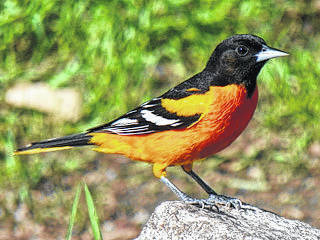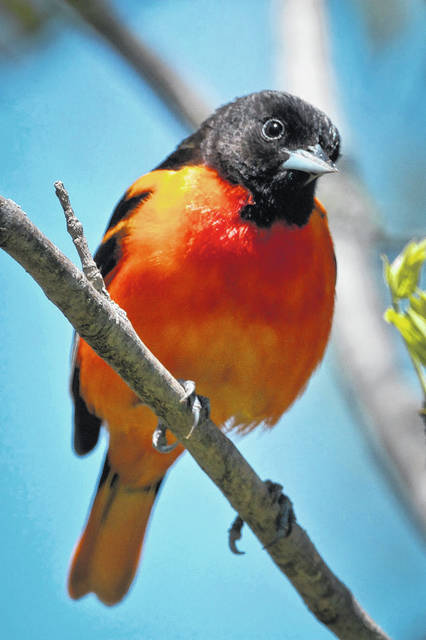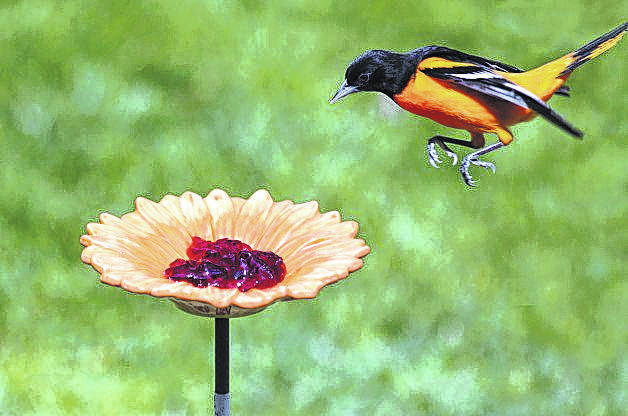PICKENS COUNTY — The South Carolina Department of Natural Resources (SCDNR) will conduct an annual Baltimore Oriole Winter Survey Feb. 16-19 in conjunction with the Great Backyard Bird Count.
The state natural resources agency is interested in the status and distribution of these colorful songbirds that have begun wintering in the Palmetto State.
Survey participants count and record the largest number of Baltimore orioles they can see at one time, on one, two, three or all four days of the survey period. You can participate in the survey by either requesting an SCDNR survey form, or if you are a Great Backyard Bird Count participant, you can e-mail a copy of your checklist submission to SCDNR.
Baltimore orioles usually winter in South and Central America and historically it was unusual to see one in S.C. during the winter, a SCDNR spokesperson said. However, during the last few decades, they have been wintering along the East Coast and Southeast in greater abundance.
The agency stated last year’s Great Backyard Bird Count results had sightings ranging along the east coast from Florida to Maine and as far north as Nova Scotia, with the bulk of the birds wintering from Virginia, south to Florida. There were a scattering of reports from the Gulf States and across the country, as far west as California.
South Carolina Winter Baltimore Oriole Survey data combined with the Great Backyard Bird Count data had S.C. with the highest number of reports (29 percent of the total number of reports) and the highest number of orioles tallied (40 percent of the total amount of orioles tallied), they said.
S.C. had orioles as far inland as Greenville and along the coastal zone from Myrtle Beach to Hilton Head Island.
Though SCDNR is not sure why these birds have begun overwintering in the state, they said they are responding well to the popularity of backyard bird feeding.
“Orioles by nature have a ‘sweet tooth’ and will eat nectar from flowers and wild fruits,” the said. “Their favorite bird-feeding food by far seems to be grape jelly. Orange halves can be used to attract the orioles into your yard, but grape jelly will encourage them to return.”
Other items they will eat are suet products (homemade, cakes, bark butter, logs, etc.), sugar water (they will drink from hummingbird or oriole nectar feeders), seed mixes (seem to prefer nut and fruit mixes), sliced grapes, mealworms (live or freeze-dried), sweet cornbread and … wait for it … pound cake.
During the winters from 2009-2015, SCDNR said they trapped and banded Baltimore orioles that frequented feeders around the state.
SCDNR trapped a total of 1,148 birds at 41 sites; banding 990 and recapturing 158, representing 142 individuals. But the most exciting find was when one of the orioles banded in Myrtle Beach on March 8, 2011, was recovered on Sept. 23, 2015, in British Columbia, they said.
This is at the extreme western edge of Baltimore orioles’ known range.
SCDNR says they have cut back on the banding efforts for now, but they wish to continue monitoring these birds.
The survey will enable scientists to learn distribution and abundance of Baltimore orioles wintering in S.C. Information from the survey and Great Backyard Bird Count can provide a “big picture” about what is happening to Baltimore oriole populations, they said.
For more information, contact Lex Glover at GloverL@dnr.sc.gov.
For more information on the Great Backyard Bird Count, visit www.gbbc.birdcount.org.



